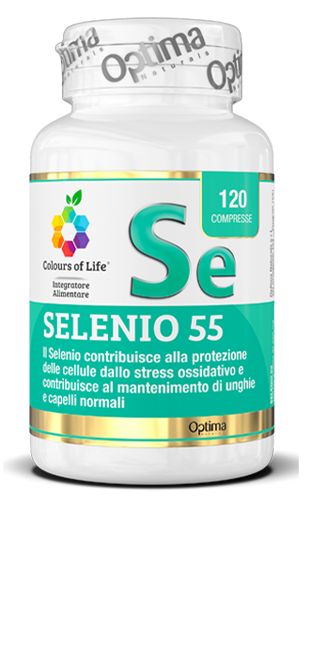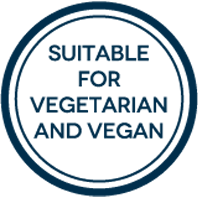Selenium helps protect cells from oxidative stress and contributes to the maintenance of normal nails and hair.
This important mineral is present in the body in selenoproteins; these are proteins involved in redox reactions, where selenium acts as a catalytic centre. The most important of these proteins are glutathione peroxidase and laiodothyronine 5' deiodinase, which are involved in the removal of peroxides (or free radicals) and in the synthesis of the thyroid hormones thiodothyronine and tetraiodothyronine, respectively. The amount of Selenium in food depends fundamentally on the presence of this mineral in the soil: some regions of China and Russia, for example, are particularly deficient in this mineral, resulting in a high risk of deficiency and the development of diseases related to it, such as Keshan disease and Kashin-Beck disease. Soils that can be cultivated are therefore enriched with Selenium, so that foods contain appreciable amounts, and supplementation with natural products is recommended. With SELENIUM 55, 55 micrograms of Selenium can be taken in a single tablet, corresponding to 100% of the Nutritional Reference Value.
How to use
Take 1 tablet daily with a little water or other beverage to taste.Indications for use
Ingredients
|
Mean value for maximum daily dose |
1 tablet |
|
Sodium slenite Of which Selenium |
0,12 mg 55 mcg |


 Skin and annexed cutaneous functions
Skin and annexed cutaneous functions
 Immune system
Immune system
 Antioxidant
Antioxidant
 Optima Naturals S.r.l. ® Via Sempione 124, 21029 Vergiate (VA)
Optima Naturals S.r.l. ® Via Sempione 124, 21029 Vergiate (VA)